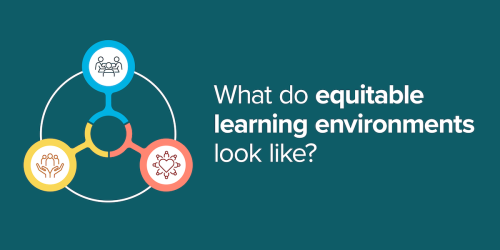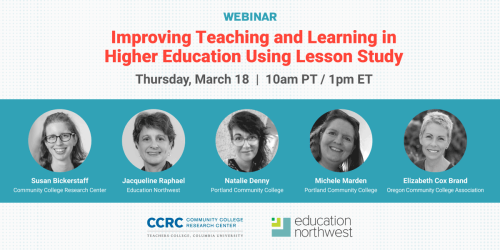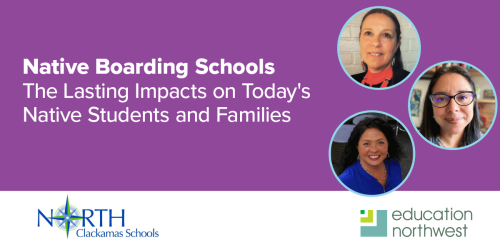This presentation featured findings from the ECMC Foundation Basic Needs Initiative evaluation report. This report provides lessons for implementing comprehensive, student-centered basic needs services.
The ECMC Foundation launched the Basic Needs Initiative in fall 2019. Through the three-year initiative, a group of seven grantees will receive funding and support to build systemic, sustainable solutions for meeting college students’ basic needs.
Equitable learning environments support positive outcomes for students, educators, and entire school communities.
The report describes strategies to build better systems to support high school alternatives that empower young people to transform their lives and build momentum for their future.
The following resources for planning, designing, and implementing a youth mentoring program were developed by our National Mentoring Center project.
Many Native students do not receive the services they are entitled to, simply because they are not identified as Native when they enroll in school.
An infographic that offers strategies for educators to build their awareness of these cultural traditions and address the needs of this often-overlooked student population.
Learn about two new studies that address the research gap on Indigenous English learners.
Download a visual representation that describes the stages in a lesson study cycle and see interviews with three college instructors about their experience with each stage.
Lesson Study is a structured, collaborative professional development intervention with evidence showing that it improves mathematics instruction among K-12 teachers.
Education Northwest has refined and updated the 6+1 Trait® rubrics that that specify how to assess the quality of student writing and tailor instruction to students’ needs.
This webinar introduced lesson study, showcased new implementation resources, and reviewed research findings from the project.
As schools and districts increasingly take a cross-curricular approach to improving student writing skills, it’s more important than ever that students get clear, consistent feedback from all their teachers.
How do past boarding school practices and policies affect our Native students and families today? Learn from several educators in the Western region who are successfully partnering with our Native communities.
Learn strategies, raise consciousness, and begin to critically examine school practices that provide the opportunity for Latinx students and families to thrive in our schools.















